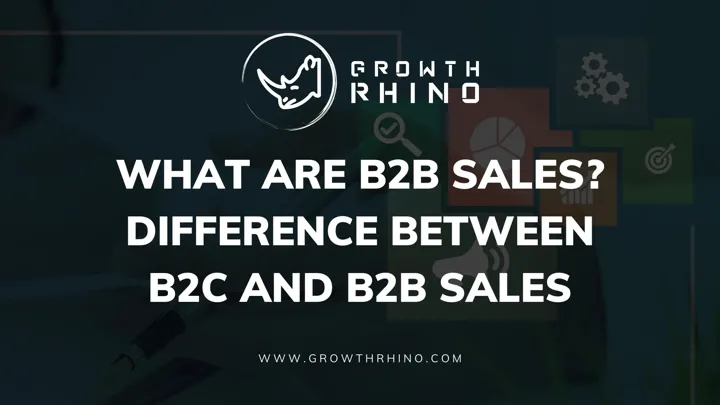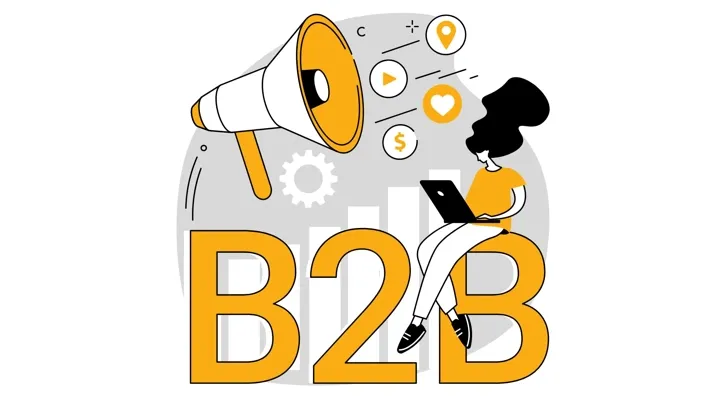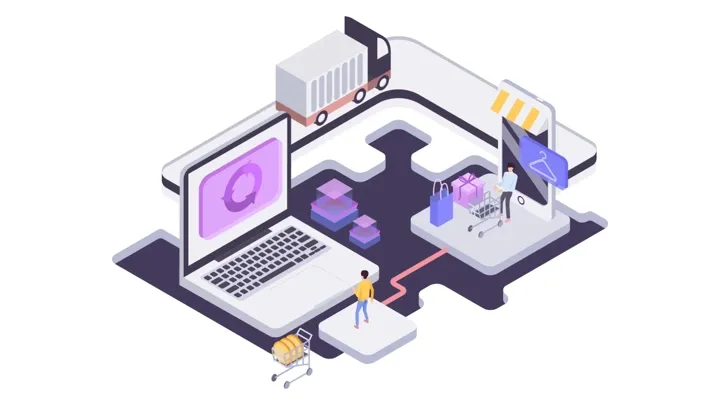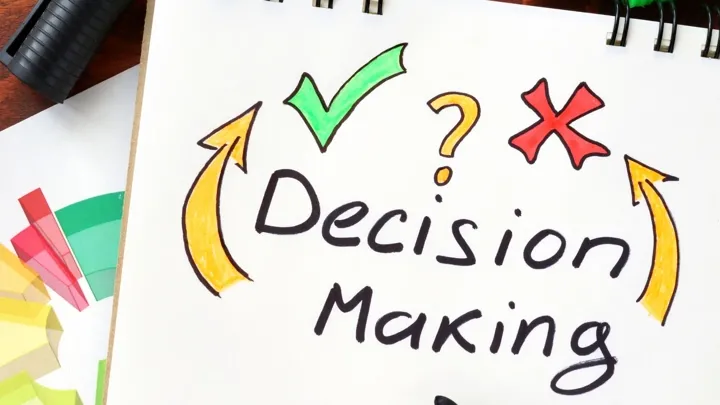
Do you know the difference between B2B and B2C sales?
We’re going to break down what exactly makes them different, so you can figure out which one is right for your business.
Ready? Let’s get started!
What are B2B Sales?
Business-to-business (B2B) sales are when you sell products or services to another company or organization. It's where two businesses transact with each other.

This could be anything from a manufacturer selling to a wholesaler, to a business buying services from an agency.
What are B2C Sales?
Business-to-consumer (B2C) sales are when you sell a product or service to an individual consumer. This could be anything from a small business selling to their local community, to a large company selling products or services online.

B2C sales are made to the general public through retail outlets or online stores such as Walmart or Target. B2C sales are made to businesses that purchase products with the end goal of reselling them for a profit.
What is the Difference Between B2B Sales and B2C Sales?
B2B Sales:
1. Offer Products and services that satisfy business needs such as efficiency, productivity, or effectiveness.
2. Higher price points since they are intended for other businesses to resell
3. Target Customer of B2B sales are Businesses and government organizations.
4. Business models of B2B sales are wholesaling, retailing, and consulting.
5. Their Distribution channels are Directly to other businesses; through intermediaries such as agents, value-added resellers (VARs), or distributors.
6. There is a longer purchase/sales process.
7. Their Business interactions are last for a long time.
8. B2B decision making process is well-planned and logical, based on necessities.
9. They produce products in bulk quantity.
10. Their main focus is making the relationship between businesses.
11. Their brand’s worth established on the basis of a company's trust and personal relationship with clients.
B2C Sales:
1. Offer Products and services that satisfy individual needs such as entertainment, communication or mobility.
2. Lower price points since they are being sold to the end consumer directly rather than other businesses to resell.
3. Consumers and individuals of all types including small business owners are their Target Customer.
4. Business models of B2C sales are Consumers in general; segments based on demographics, location, behaviors/habits, purchase behavior etc.
5. They have Mass distribution channels such as retail stores or online marketplaces.
6. There is a shorter purchase/sales process.
7. Their Business interactions are last for a short time.
8. B2C decision-making process is driven by want and desire.
9. They produce products in small quantity.
10. Their main focus are their products.
11. B2C is based on a company's advertising and promotional efforts
Advantages and Disadvantages of B2B and B2C Sales:
There are more benefits of using a B2B model than there are disadvantages which makes it an attractive option for companies.
Advantages of B2B Sales:
- More Stability: B2B sales can be more stable and predictable this is mainly because of the relationship that already exists between two companies in a B2B setting. There is a higher chance that the two companies have done business together in the past and will continue to do so in the future.
- Easier to Build Trust: Since there is already a relationship between two businesses, it’s easier for them to build trust with each other which can lead to more fruitful long-term business relationships. This is because they have already been able to prove that their services and products are legitimate. In a B2C setting, this can be more difficult as many people often don’t know the company or the product itself before purchasing it from them.
- Greater Focus on Long-Term Goals: In a business-business relationship, there is a greater focus on long-term goals. This is because there are already pre-existing business relationships in place and they both know if their businesses will continue to be successful or not by focusing on the future together. Both parties are working towards a common goal instead of competing with each other to gain an edge over one another.
- Decreased Risk of Fraudulent Transactions: Since B2B transactions often involve larger amounts than traditional B2C ones, it’s less likely that someone will try and scam the other party in the deal. This is because there’s simply more to be gained by successfully completing a B2B transaction than there is with a smaller B2C one.
- Customers Have More Control: In a business-business setting, customers have more control over what they want and need than they would as a consumer. Because of this, B2B customers can be more demanding and have higher expectations for the products or services that they’re buying. Also, since the buyer and seller are already familiar with each other, they can work together to create a product or service that perfectly meets the needs of the customer.
- Higher Margins: In general, businesses enjoy higher profit margins on sales when selling to other businesses as opposed to selling to consumers. This is because businesses are able to purchase items in bulk at a discounted price and then mark them up when they sell them to other companies.
Disadvantages of B2B Sales:
- Limited Market: B2B refers to business-to-business transactions. As a result, it has a restricted market area because it involves commercial interactions. Because of this, small and medium eCommerce enterprises might find it risky to enter the B2B marketplace.
- Lengthy Decision-Making: In B2B, it often takes longer to close a deal. The majority of purchases are made in a lengthy process since there are two firms involved. There may be several stakeholders and decision-makers to consider during the procedure. This could delay the process and might even discourage smaller businesses from starting out in this type of sales.

- More Competition: Since there are fewer buyers in the B2B market, each supplier is forced to compete fiercely for every purchase. This can be draining both emotionally and financially, as well as time-consuming.
- Low Margins: Compared to B2C, the margins for B2B are lower. This difference in profit can be attributed to different costs and expenses that each business has: research and development, sales and marketing, customer service, and support.
Advantages of B2C Sales:
- B2C sales are often faster and easier to close than B2B sales.
- The advantages of B2C sales are that they can be more personal, and customers feel like they are part of the process.
- Additionally, buyers may feel more comfortable making a purchase from a company they are familiar with, which can reduce the risk associated with conducting transactions.
- The ability for companies to reach out globally has also become a major benefit associated with conducting business through B2C sales.
- Online marketing services are also becoming extremely popular so you can quickly set up an online store using top eCommerce platforms such as Shopify and Magento
- Conversion of visitors into customers is simple.
- Small and mid-size companies can develop rapidly using this approach.
Disadvantages of B2C Sales:
- One disadvantage of conducting business through B2C sales is that it is more expensive in many cases.
- Many challenges must be overcome in order to survive and flourish in a competitive environment.
- It has low margins.
- It is tough to maintain repeat consumers.
- You need to have a well-developed sales and marketing infrastructure in order to succeed in this market.
- Competition is fierce.
- Customers might be price-sensitive, and it can be difficult to scale up.
- There is a lack of trust between the buyer and seller in some cases.
Examples of B2B and B2C Sales:
Let's assume you're a computer firm and you've decided to sell them. What route should you take: B2B or B2C?
If you go B2B, you will have to make a list of businesses that you think would be interested in purchasing your computers. You'll then need to contact these businesses and see if they are interested in what you're selling. If they are, you'll need to negotiate the price and terms of the sale.
You'll sell in bulk at a reduced rate to other businesses, which will then resell those computers directly to businesses such as wholesalers, distributors, or other firms.
If you go the B2C route, you will put your computers on a website and wait for customers to see your products or you'll need to have a physical location where customers can come to your location and purchase the computers in person. The disadvantage is that you must spend more of your time marketing the computers, but this allows you to sell them for a greater price.
In the B2C route, you'll need to invest in a lot of resources such as salespeople, marketing materials, and support staff. You'll also need to create a process that allows customers to place orders, track their shipments, and get customer service.
FAQ related to B2B and B2C Sales:
Here are some of the most commonly asked questions about B2B and B2C Sales:
Q: What is the difference between B2B and B2C sales in terms of marketing?
A: The main difference between B2B and B2C sales is how products are marketed to potential customers. With B2C sales, products tend to be advertised directly to consumers via mass media like television commercials. Products may also be featured on e-commerce websites like Amazon or eBay.
In contrast, B2B products are not typically advertised to the general public. Instead, potential customers are targeted through marketing efforts and then contacted by a sales representative to discuss the product or service in more detail. The goal of this initial contact is to determine if there is interest in the product or service.
Q: Which is more profitable B2B or B2C?
A: There is no simple answer to this question as it depends on a number of factors, including the size and scope of the business. However, in general, B2B sales are more profitable than BtoC sales. Though the B2B market is smaller than the B2C market, it involves fewer deals but a greater sales amount.
The B2C market, despite being significantly larger and more competitive than the B2C market, must charge greater prices in order to generate a profit.
Conclusion:
With a better understanding of the different types of sales, you may be able to find what works best for your business. Whether that means B2B or B2C, we can help! Our team is available to answer any questions and walk you through how our process could work for you.
If this appears to be something you're interested in, please contact us right now!
